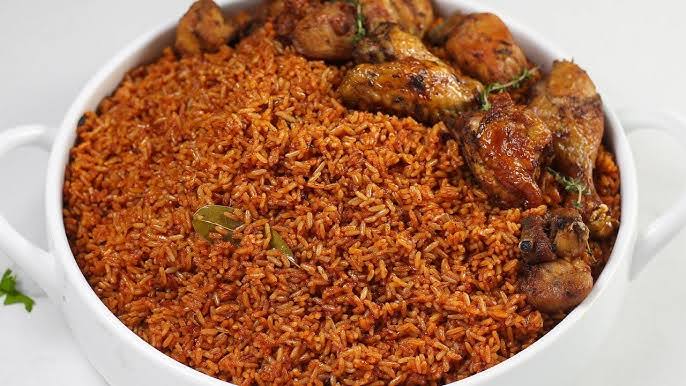By Miracle Ogunde
Nutrition experts have cautioned against intake of hot rice, explaining that it has a high glycemic index, and when consumed by diabetics causes raised blood sugar also known as hyperglycaemia.
Accident to them, this condition could result in uncontrolled diabetes and damage to the nerves and blood vessels.
Speaking further, the nutritionists stated that eating large quantities of hot rice could overwhelm the insulin required to metabolise the sugar produced by the rice, potentially resulting in ill health.
They also maintained that while nutrition and diet were largely dependent on individual preference, certain foods were recommended to be at certain temperatures before consumption.
In exclusive interviews with PUNCH Healthwise, the dieticians advised that rice should be eaten while still warm and not cold to avoid it becoming a breeding ground for bacteria like Bacillus cereus which could cause food poisoning.
According to the World Health Organisation, diabetes is a non-communicable disease that occurs either when the pancreas does not produce enough insulin or when the body cannot effectively use it. Insulin is a hormone that regulates blood glucose.
It further notes that hyperglycaemia, also called raised blood glucose or raised blood sugar, is a common effect of uncontrolled diabetes and over time leads to serious damage to many of the body’s systems, especially the nerves and blood vessels.
Speaking with PUNCH Healthwise, a nutrition specialist with FHI 360, James Oloyede, stated that hot rice has a high glycemic index, which means it releases glucose into the body at a higher rate.
He noted that this could cause a rise in blood sugar levels, asserting that it was unhealthy for persons living with diabetics.
The Senior Technical Advisor on Nutrition said, “Hot rice contains a high glycemic index, which means that the rate at which it releases glucose into the body is at a higher rate and that may not be too good for somebody who is diabetic.”
Oloyede further noted that when rice was allowed to cool down, it became firmer and drier and built up resistant starch, which was healthy.
Continuing, he said, “Resistant starch is very good and beneficial, especially, you know, as it slows down the rate of digestion and has a lower glycemic index, making it better for those who want to control their blood sugar level.”
The former Director of Nutrition Services and Health Education at Osun State Primary Health Care Development Board, Osogbo, however, maintained that hot rice was best for immediate consumption to eliminate the risk of contamination and food poisoning, which could occur while waiting for it to get cold.
The nutritionist further advised that food was better eaten when it was not too hot or too cold.
For individuals with certain health conditions, Oloyede advised that they consult a dietician nutritionist who would prescribe the kind of food and at what temperature such food should be eaten.
Speaking further, he said, “African diet is so good that most of our diets contain resistant starch, which, of course, is a form of a fibre that slows down our digestion. If people know how to mix their food, we shouldn’t be having issues that relate to food ill-health. We are trying to copy the Western diet that’s the reason we have a surge in non-communicable diet-related diseases in our country today, unlike before.
“It’s not just only rice that contains this resistant starch. There are other foods that contain it naturally, like potatoes, if eaten potatoes when it is cold, there’s also some level of resistant starch that slows down the digestion and release of glucose, which has a lower glycemic index, unlike if you eat it when it is hot.
“Also, most of our legumes contain resistant starch that helps our digestion because of the fibre content that they contain.”
The nutritionist advised persons who have to eat their rice cold to maintain a high level of hygiene to prevent bacteria infestation and food poisoning.
Oloyede further advised, “If you don’t have any health issues, rice is better eaten hot because the risk of contamination, bacterial infection and food poisoning are lesser when eaten at some hot temperature, unlike when it is very cold.
“So, a person that wants to eat cold rice must maintain good hygiene so that while wanting to control blood sugar level, they are not introducing bacteria that can cause food poisoning and nullify the effect of what you want to control the first instance. One is even more acute and more dangerous than the other because you can manage diabetics, but if you have acute food poisoning, the person will not be able to survive it at the end of the day. So there must be a balance between the two positions.”
However, for those who must eat their food hot regardless of their health condition, the nutritionist said, “If you want to eat rice hot, eat moderately. Eat the one that will satisfy your appetite and with the kind of work that you do.”
A nutritionist and chief dietician, Olufunmilola Ogunmiluyi, explained that eating food while still hot could stimulate digestion, alleviate symptoms of indigestion and bloating and increase the absorption of minerals like iron, zinc, and calcium.
However, she noted that not all foods were suitable for consumption at high temperatures.
Olufumilola Ogunmiluyi
Ogunmiluyi further mentioned that eating extremely hot food could cause burns, discomfort and pain in the mouth, throat, and digestive tract, noting that repeatedly consuming very hot food could lead to inflammation and damage to the oesophagus.
The dietician also stated that overcooking or overheating could destroy or denature nutrients, especially vitamins and proteins.
Ogunmiluyi explained that when rice was consumed hot, it could cause a rapid increase in blood sugar levels which was problematic for people with diabetes.
The nutritionist said, “Hot rice has a higher glycemic index (GI) compared to cooled or cooked rice. This means that hot rice can cause a more rapid increase in blood sugar levels that is increasing the blood glucose which can be problematic for people with diabetes or those who are trying to manage their blood sugar levels.”
She further noted that eating warm or cooled-down rice could help regulate blood sugar and appetite as it created a resistant starch that was difficult for the body to digest.
Speaking on the benefits of eating cold rice, Ogunmiluyi said, “Cooling rice after cooking creates resistant starch, which can help regulate blood sugar and appetite. Resistant starch is a type of fibre that’s difficult for the body to digest, but it can feed healthy gut bacteria.
“Cooling rice can help reduce blood sugar spikes after eating.”
Providing nutritional advice on eating rice, the dietician noted, “Hot rice can be easier to digest, especially for people with digestive issues, as the heat can break down some of the starches and make the rice more palatable.
“Hot rice can increase the bioavailability of some nutrients, such as vitamin B1 (thiamin), which is more easily absorbed when rice is cooked and served hot.
“Eating warm rice will also help to avoid breeding ground for bacteria like bacillus Cereus which can cause food poisoning.”










Leave a Reply